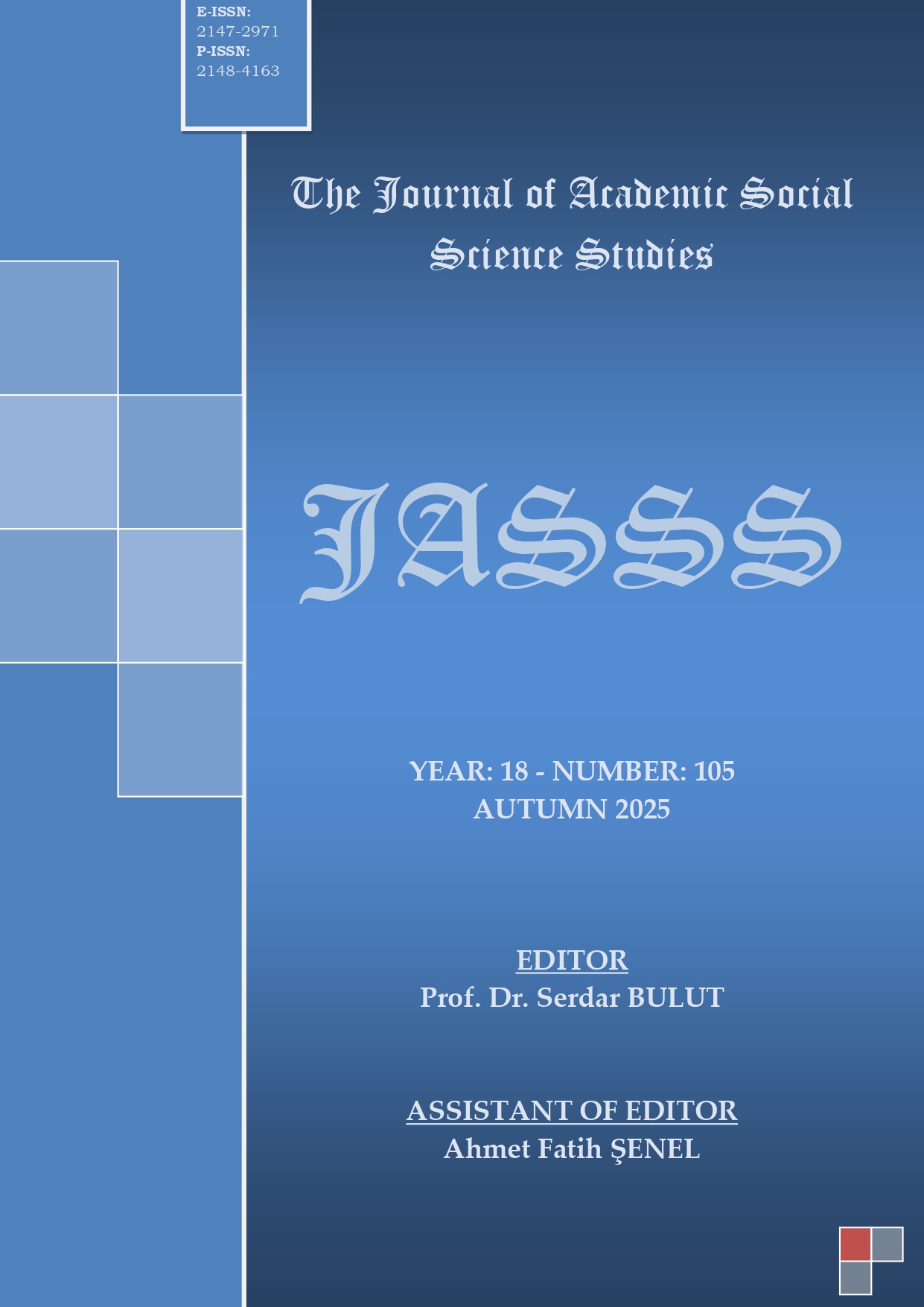DİJİTAL OYUN DESTEKLİ MATEMATİK ÖĞRETİMİNİN ORTAOKUL ÖĞRENCİLERİNİN MATEMATİKSEL AKIL YÜRÜTME BECERİSİNE ETKİSİ
Author :
Abstract
Eğitimde dijital oyun kullanımı; yenilikçi, etkileşimli öğrenme ve öğretme yollarını beraberinde getirir. Özellikle soyut kavramların daha yoğun olduğu, somutlaştırmanın daha zor olduğu matematik eğitimi alanında dijital oyunlar öğrencilerin bilişsel becerilerin gelişimine katkı sağladığı düşünülmektedir. Bu araştırma, dijital oyun destekli matematik öğretiminin ortaokul öğrencilerinin matematiksel akıl yürütme becerileri üzerindeki etkisini incelemeyi amaçlamaktadır. Araştırmada deneysel desen kullanılmıştır. Çalışmanın deney grubuna dijital oyun destekli matematik Araştırma, 2023-2024 eğitim-öğretim yılında İstanbul ilinde bir devlet ortaokulunda öğrenim gören 80, 6.sınıf öğrencisi ile yapılmıştır öğretimi yapılırken, kontrol grubuna düz anlatım yöntemiyle matematik öğretim programı uygulanmıştır. Öğrencilerin akıl yürütme becerilerini değelerlendirmek amacıyla Cronbach alpha güvenirlik katsayısı 0.933 olan “Akıl Yürütme Becerisi Ölçeği (PÇBÖ)” kullanılmıştır. Verilerin ANCOVA analiz sonuçları, öğrencilerin problem çözme becerileri ön test puanları kontrol edildiğinde, son test puanlarının deney ve kontrol grupları arasında istatistiksel olarak anlamlı bir farklılık gösterdiğini ortaya koymuştur. Deney grubunun düzeltilmiş son test puan ortalaması, kontrol grubunun ortalamasından belirgin şekilde yüksek çıkmıştır. Bu bulgular öğrencilerin çıkarım yapma ve matematiksel kavramlar arasında ilişkiler kurma becerilerini geliştirmede dijital oyun destekli öğretimin etkili olduğunu ortaya koymaktadır. Literatürdeki farklı çalışmalarda bu bulguları destekler niteliktedir. Dijital oyunlar, stratejik düşünmeyi teşvik eden içeriklerle ve çok adımlı problem çözme görevleriyle öğrencilerin akıl yürütme becerilerinin gelişimine katkı sağlamıştır. Gelecekteki çalışmalar, bu öğretimin yaklaşımını daha farklı örneklemlerle daha kapsamlı inceleyip uzun vadeli sonuçlarını değerlendirebilir.
Keywords
Abstract
The use of digital games in education brings innovative, interactive learning and teaching methods. It is thought that digital games contribute to the development of students' cognitive skills, especially in the field of mathematics education, where abstract concepts are more intense and concretization is more difficult. This research aims to examine the effect of digital game-supported mathematics teaching on the mathematical reasoning skills of secondary school students. An experimental design was used in the research. Digital game-supported mathematics was taught to the experimental group of the study. The research was conducted with 80 6th grade students studying in a public secondary school in Istanbul in the 2023-2024 academic year, while a mathematics teaching program was applied to the control group with a straight narrative method. In order to evaluate the reasoning skills of the students, the "Reasoning Skills Scale (PÇBÖ)" developed with a Cronbach alpha reliability coefficient of 0.933 was used. The ANCOVA analysis results revealed that when the students' problem solving skills pre-test scores were controlled, the post-test scores showed a statistically significant difference between the experimental and control groups. The adjusted post-test score average of the experimental group was significantly higher than the average of the control group . These findings reveal that digital game-supported instruction was effective in developing students' inference and relationship-making skills between mathematical concepts. Different studies in the literature support these findings. Digital games contributed to the development of students' reasoning skills with content encouraging strategic thinking and multi-step problem-solving tasks. Future studies can examine this instructional approach more comprehensively with different samples and evaluate its long-term results.





